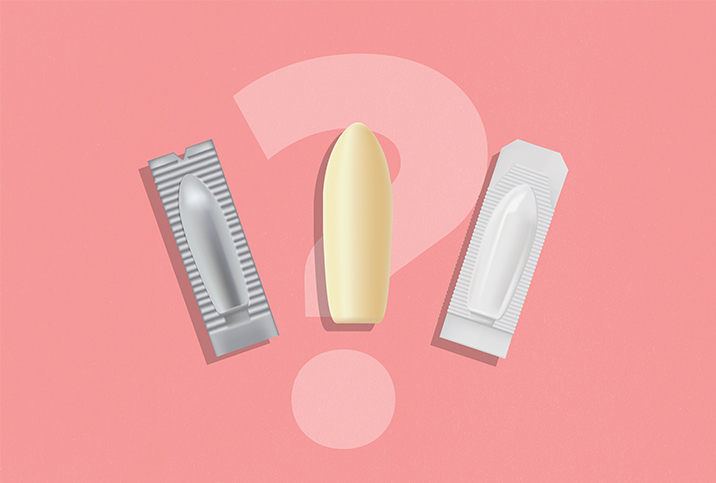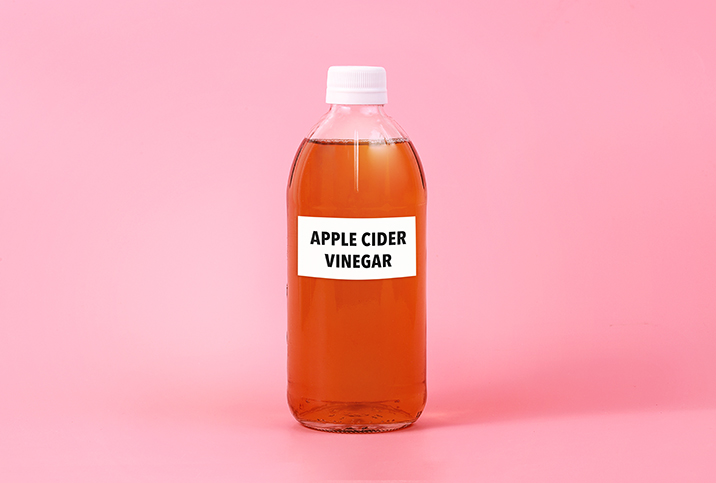Navigating Vaginal Suppository Safety

You're probably used to popping an Advil when sick or inhaling nasal spray to fight allergies—but you may have never experienced a rather surprising entry point for medication: the vagina.
A vaginal suppository is typically a small capsule that's inserted into the vagina to administer medication. The capsule will then melt to the temperature of the vagina and release the medication, which will be absorbed into the bloodstream.
But in recent years, there has been a rise in over-the-counter (OTC) vaginal suppositories. These products boast many benefits, but without official regulation, it can be difficult to know what is safe for use. We talked to the experts to get their guidance.
Medical suppositories
There are a number of vaginal suppositories, but the most common ones are used to treat yeast infections, bacterial vaginosis infections and postmenopausal vaginal dryness, and for labor induction, according to Sarah Yamaguchi, M.D., F.A.C.O.G., a Los Angeles–based gynecologist at DTLA Gynecology.
According to the Centers for Disease Control and Prevention (CDC), bacterial vaginosis (BV) is the most common vaginal infection affecting women ages 15 to 44. Treatment for BV is antibiotics, which can come in the form of a cream, tablet or a suppository. It's believed that inserting the medicine directly into the vagina is just as effective as taking the medicine orally. For some people, this could result in fewer side effects.
Prescription vaginal suppositories that are used to treat vaginal infections and dryness are generally considered safe and are often very beneficial. However, there are some incidents where the medicine leaks out or isn't administered correctly, which can hinder the effectiveness. If this happens, you can talk to a healthcare professional who can provide an alternative, such as a pill or cream that may be easier for your body to absorb.
Spermicide suppositories
Spermicide is a birth control method used to prevent pregnancy by killing the sperm before it reaches the egg. It typically comes in the form of a gel or suppository. If using the suppository, you simply insert it into the vagina 10 to 15 minutes before having sex. Once dissolved, there will be a foam-like texture.
When used alone, spermicide has a high failure rate, with up to 28 percent of women experiencing an unwanted pregnancy in the first year of use. To provide better protection, spermicide can be used with condoms, a cervical cap or a diaphragm, but even with another barrier method, there is still a failure rate of 12 percent with typical use. Additionally, the required preparation prior to sex might not be suitable for everyone.
Spermicide suppositories are well-tolerated in most individuals and are usually considered safe. But as they contain the chemical nonoxynol-9, these suppositories do slightly increase the risk of HIV, especially if used multiple times a day. For this reason, you should discuss any concerns with your doctor as they can help you choose the best contraceptive for you.
Nonmedical suppositories
Flavored vaginal melts are fairly new, with many people praising them on TikTok due to the way they change the smell and taste of the vagina. These melts are intended to provide long-lasting lubrication and treat vaginal dryness. Many of these melts are made with organic and natural ingredients, such as coconut oil, cocoa butter and vitamin E oil. But as Yamaguchi explained, just because something is organic and natural does not mean it is gentle.
"In general, nonmedical vaginal suppositories are safe and will not cause any serious medical harm," Yamaguchi said. But she does warn that some people could experience allergic reactions or be more prone to vaginal infections. You should be cautious when using them, and discontinue use as soon as you experience any side effects, such as vaginal burning or unusual discharge.
"I would never recommend putting any foreign objects in the vagina unless they are prescribed specifically for you," advised Shirin Lakhani, M.B.B.S., D.R.C.O.G., an intimate health expert and founder of Elite Aesthetics. "I would strongly recommend that women don't use products such as these natural suppositories because they can change the natural balance of the bacteria that live in the vagina (the flora) and affect the natural acidity levels."
At the end of the day, it's up to you whether you use nonmedical suppositories, such as vaginal melts, but speaking with your doctor about what you're using is important so you can make an informed decision and know what's best for your body.


















